Sharing the simple pleasure of gardening
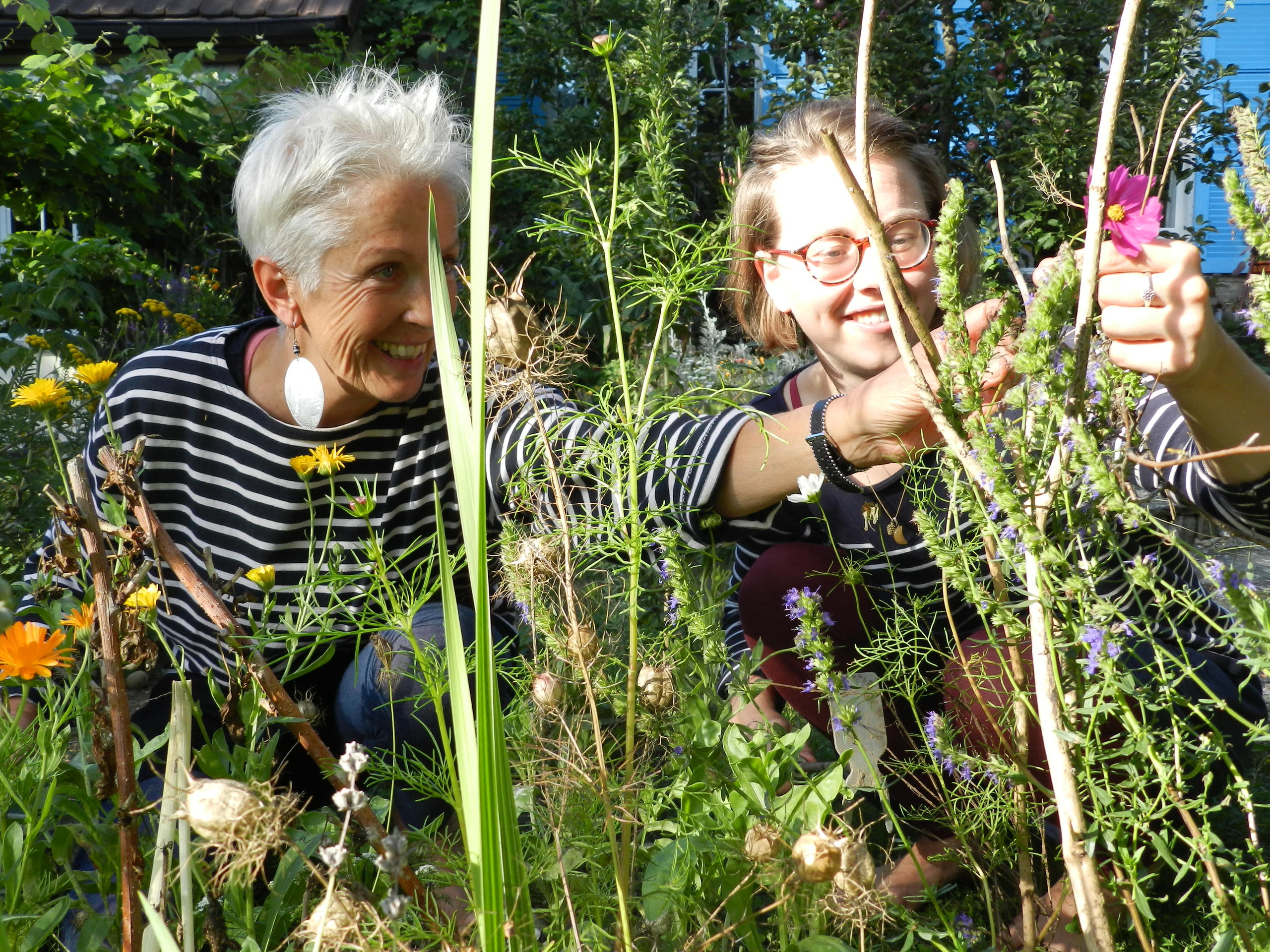
On the outskirts of the Swiss capital Bern, two women work side-by-side weeding herbs. The scene is timeless but this garden owner and recent graduate are participating in a very modern social contract.
Luna Sartori comes from a French-speaking village in the mountains of canton Valais. She grew up helping her parents grow fruit and vegetables in their big garden. As a young professional, living in a studio apartment in German-speaking Bern and working in front of a computer all day, she missed the feeling of being in close contact with the earth. Her small balcony full of plants was not enough.
Regina Gubler, now in her sixties, created her storybook garden over 23 years. With patience and imagination, she turned a plain lawn with a few scattered trees into a dappled paradise of winding paths and terraced beds, with fruit trees, shrubs, plants, water features, flowers and vegetables covering every surface.
As the garden became fuller and more diverse, Regina found it more difficult to keep everything under control. “It looks wild but it’s very labour intensive. There are more plants and insects than before and I was getting older and slower.”
Common purpose
Sitting on the raised patio she made herself, Gubler sips homemade cucumber cordial and recounts how she discovered the garden-sharing platform horterre.chExternal link. “I picked up a flyer in the garden centre and I was intrigued. I thought it would be great to have someone work with me. I published my wish and sent it out to the universe.”
Sartori had been in Bern a year when she came across Gubler’s announcement and got in touch last April. “When I arrived for our first meeting, I was worried the garden might be too neat and groomed but it was lovely and natural. That suited me better.”
Apart from pruning, planting, weeding and harvesting, Sartori also gets involved in DIY jobs with Gubler. “We made a wall together, which I really enjoyed. I like to work with my hands.”
The women got into a routine of working together about once a week for a couple of hours at a time. Despite the generation gap, they developed a relaxed friendship. No money changes hands in their arrangement although some garden owners on horterre.ch charge a nominal rent for giving over a portion of their land.
Overall, the garden sharing concept is more altruistic than the typical sharing economy model. It is about sharing a resource for mutual benefit rather than splitting costs or making a profit. Another difference is that there is no third party making a cut, as with the hugely successful Airbnb or Uber, founded in 2008 and 2009 respectively.
Happiness and biodiversity
The person who brought Gubler and Sartori together is Ruth Sutter. The garden sharing website is her brainchild and she set it up last year as a project to bring people closer to nature and to make better use of land.
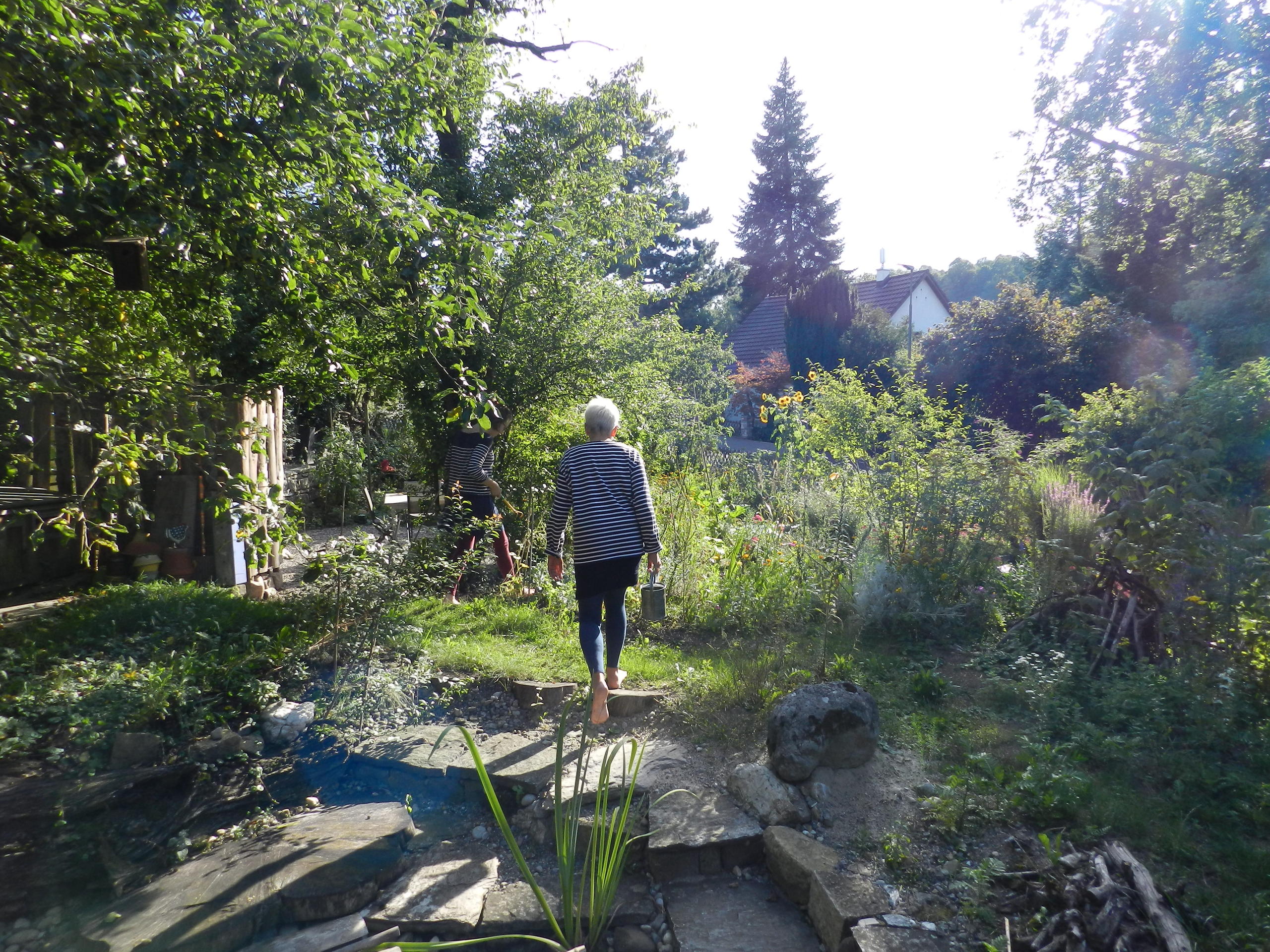
The website performs a very simple noticeboard function, with requests listed by postal code. Sutter screens the ads and helps with matchmaking if needed. It is more of a slow than dynamic sharing concept. This is the democratic side of the internet, a place where personal ventures happen on a small scale.
“Gardening is a wonderful activity; it makes people happy. On the one hand you have so many older people who can’t manage their gardens anymore and, on the other hand, you have too many people who are living far removed from nature. It seems such a pity for both to be missing out,” Sutter explained.
Biodiversity is another motivator for all three women. An alarming 36% of the surveyed species in Switzerland are under threat, classified as vulnerable, endangered or critically endangered. Properly cultivated, urban gardens can provide a friendly habitat for insects and wildlife (see box).
‘A connection with the soil’
Gubler deliberately wanted to create a garden that would be full of life. As a biologist, Sartori appreciates this approach. Through horterre.chExternal link, Sutter would like to see more people discover gardening and start growing their own food, using ecologically-friendly methods.
“Food has become so cheap and abstract and I think it’s so important for people to have a connection with the soil, see how things grow to appreciate nature more. Children are growing up without being able to name birds and plants. It is a pity if a child has to memorise pictures from a book when they could experience these things first-hand,” Sutter said.
This kind of privately arranged garden sharing is an alternative to the traditional city-run allotments. These subdivided gardens are common in Switzerland and there are 2,000 such plots in Bern in 25 sites. However, taking over an allotment is a bigger commitment. The smallest plots are 100 square metres and there are waiting lists.
In a different part of the greater Bern area, Sutter is renting a 3,500-metre patch of land. She plans to provide fresh produce to an organic garden centre and has three classes of local schoolchildren coming weekly to tend to their own plots.
There is much to learn from gardening for all ages. Regina Gubler describes the process as “a lesson in patience”. She never had a garden design. “I don’t make concrete plans; I just start something and it develops. The important thing is to have the courage to start something.”
Biodiversity: Tips to make your garden more welcoming to insects and wildlife
Stock your garden with indigenous plants
Sow wildflowers in the lawn and turn it into a meadow
Leave small structures like piles of branches, foliage or stones to provide shelter
Create a water habitat (pond)
Avoid the use of insecticides or herbicides
Allow nesting opportunities for birds, bats, hedgehogs and insects.
(Advice compiled from bioterra.ch and bafu.admin.ch)

In compliance with the JTI standards
More: SWI swissinfo.ch certified by the Journalism Trust Initiative









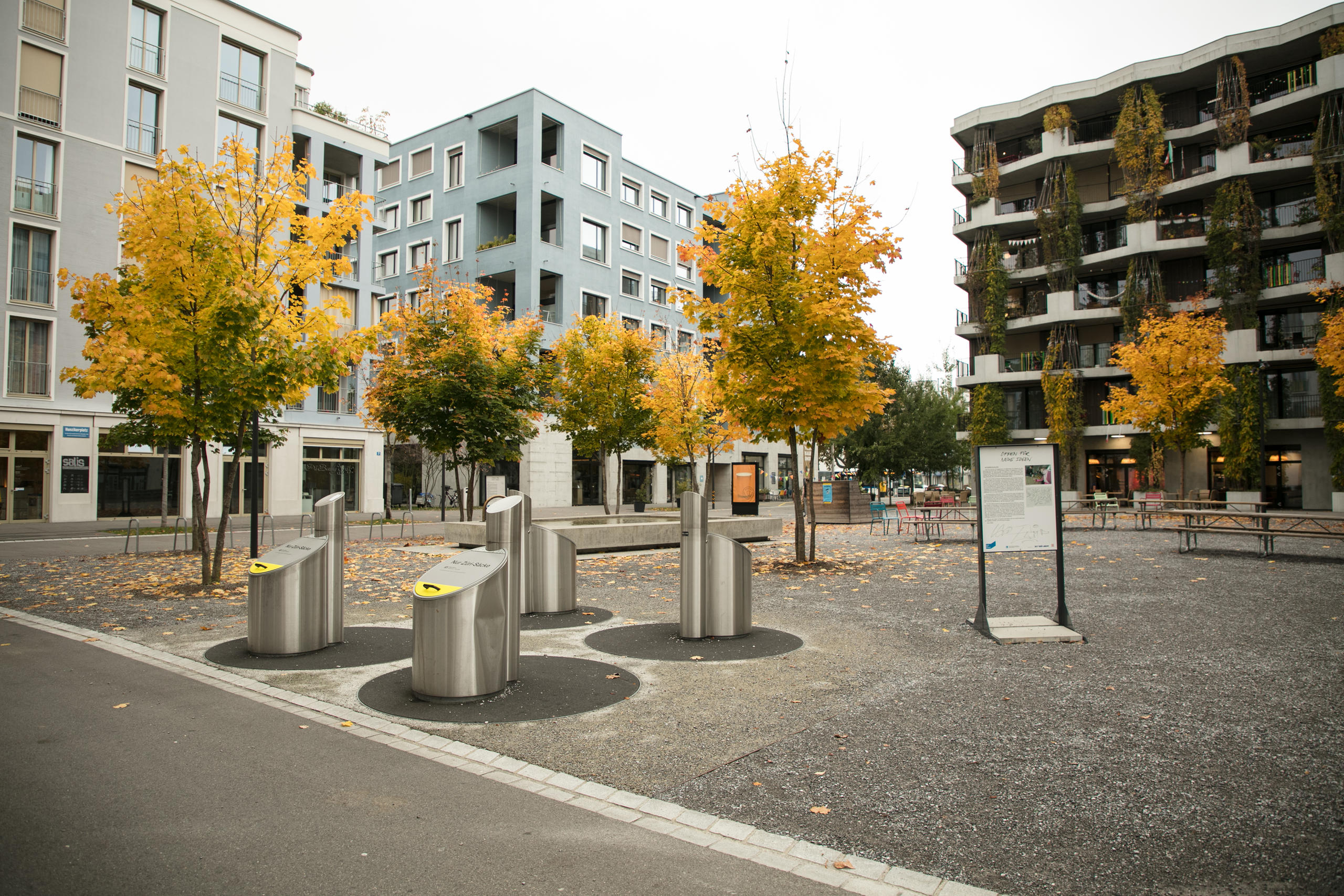
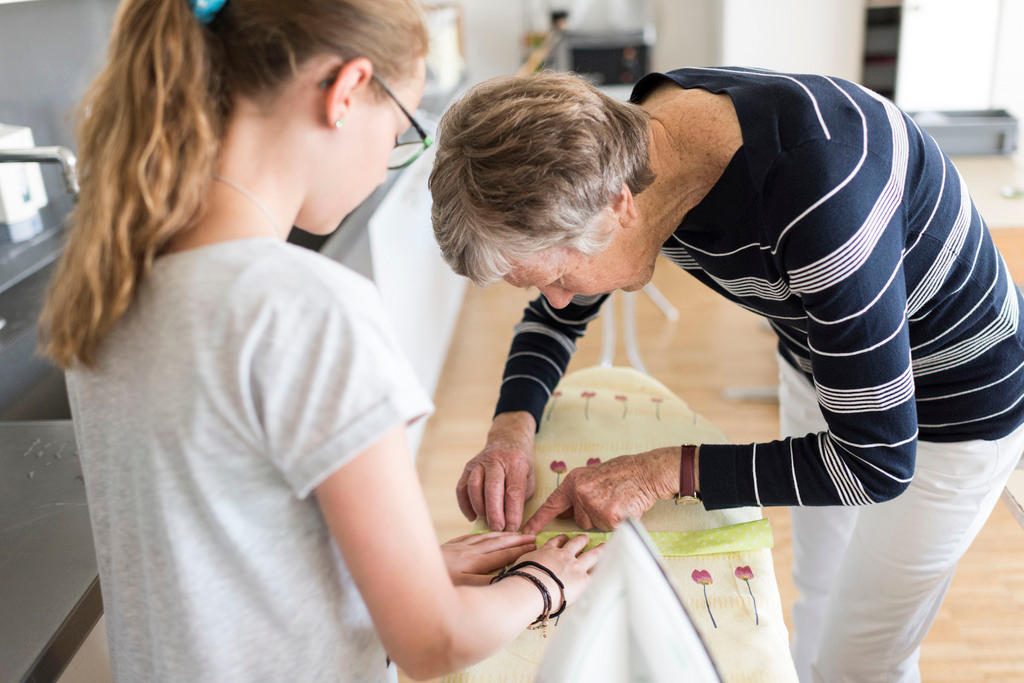
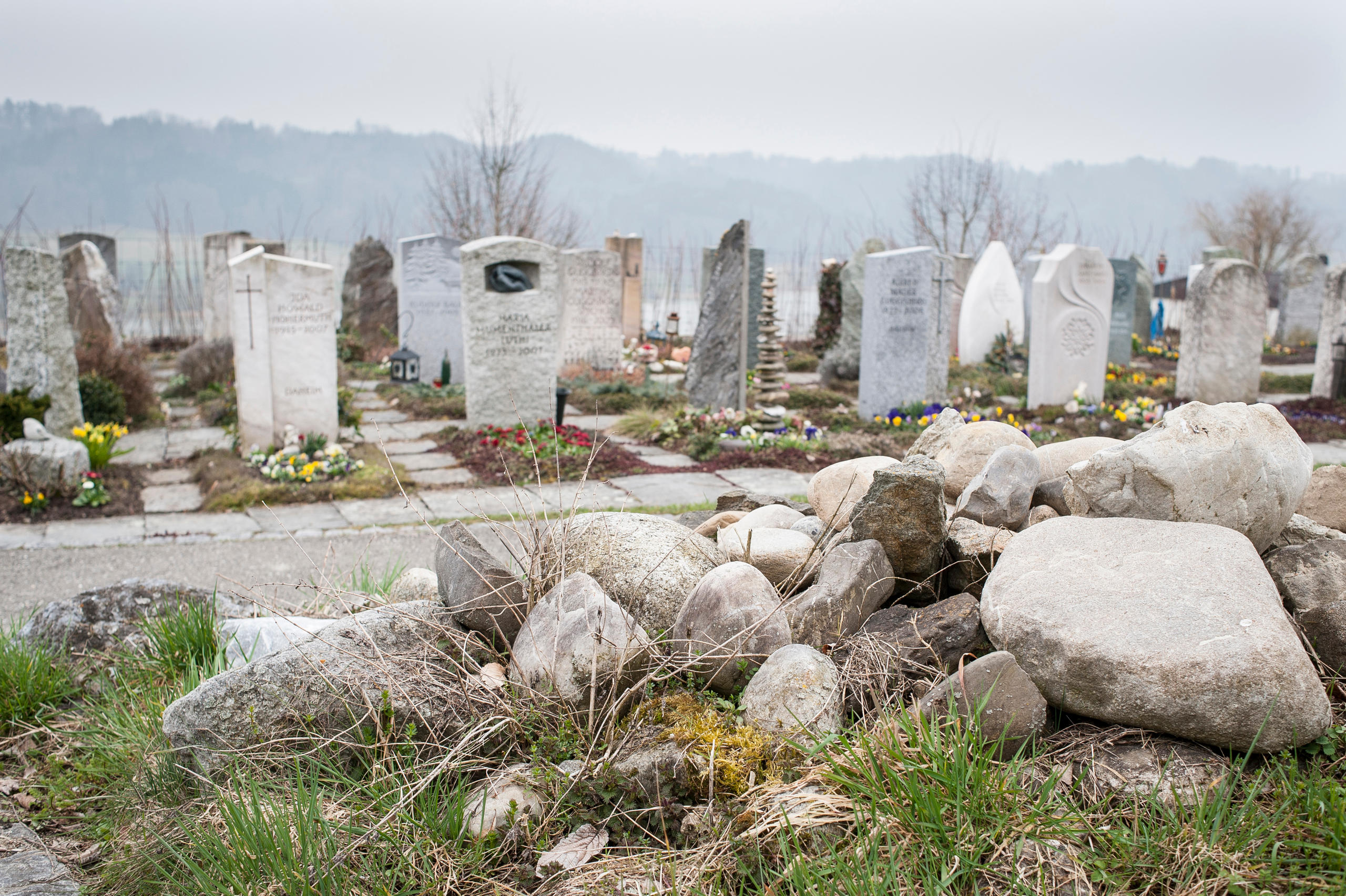
You can find an overview of ongoing debates with our journalists here . Please join us!
If you want to start a conversation about a topic raised in this article or want to report factual errors, email us at english@swissinfo.ch.